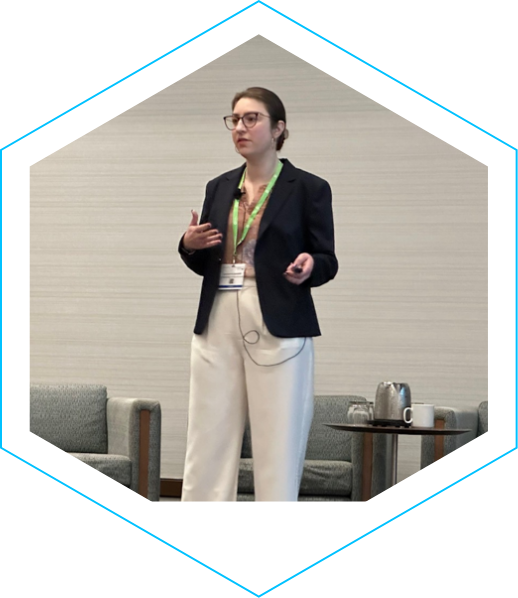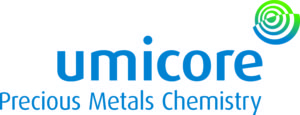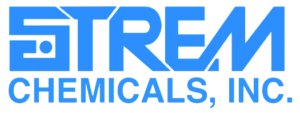
Catalysis in the Fine Chemical Industry Conference
Event overview

- A unique 2-day online conference bringing together industrial and academic innovators to discuss emerging catalytic technology and its application in the pharmaceutical, agrochemical and fine chemical industries.
- Featuring top speakers from academia and industry, this event will provide industrial chemists with an unparalleled opportunity to explore how evolving catalysis can change the future landscape of process chemistry.
- Panel discussions with world-leading catalyst suppliers and experts in industrial catalysis. Share your thoughts and experiences and help shape the future!
Via an online platform, there will be the chance to listen to the talks, view the speakers slides and ask questions after each session. The Virtual conference will be held during the following times (based on UK timing) as we hope this will allow most people to join from around the world. This event will NOT BE RECORDED – we apologise to customers in Asia who might be unable to join.
Wednesday June 2nd | 2.00 – 5.40 pm (UK)
Thursday June 3rd | 2.00 – 5.40 pm (UK)
There will be a VIRTUAL Exhibition too so you will be able to have access to suppliers of equipment, technology and services. Plus we have some exciting new developments to keep you engaged and enable networking with your peers – so please look out for our announcements.
Hosted Discussion Groups – see topics below and on our programme
Please contact us if you are interested in Exhibiting or Sponsoring this event: [email protected]
Benefits
WHO SHOULD ATTEND?
- Process Research & Organic Chemists
- Heads of Departments & Team Leaders
- Technical Managers
HOW WILL YOU BENEFIT FROM ATTENDING?
- Benefit by hearing from key speakers who will present detailed case studies.
- Learn from a wide range of academic and industrial case studies given by our hand-picked industrial speakers.
- Access how industry strategies are evolving to meet today’s challenges.
- Learn how your peers are developing solutions to common problems.
- Gather important information on technical developments and equipment.
- Bring yourself up-to-date on current developments and future trends in pharmaceutical development.
- Meet and network with the key people working in the pharmaceutical industries – during our discussion sessions.
- Save time by picking up essential tips from experts in their fields.
Hosted Discussion Sessions
WEDNESDAY JUNE 2nd
Session 1 | 5.00 – 5.45 (BST)
ROOM 1 | JOHNSON MATTHEY
HOMOGENEOUS HYDROGENATION TECHNOLOGY AT JOHNSON MATTHEY
Sarah Facchetti
An overview and an open discussion on the technology offer from Johnson Matthey, with specific focus on industrial applicability of hydrogenation and transfer hydrogenation technology, including an analysis of catalysts cost contribution to processes and process optimization.
ROOM 2 | KANEKA
PROCESS INTENSIFICATION: MANUFACTURING IMPROVEMENTS USING BIOCATALYSIS AND FLOW CATALYSIS
Stephen D Drake Ph.D., Director of Marketing and Development, Kaneka Americas Holdings, Inc.
Process Intensification of existing or new process routes for small molecules is an excellent way to make your process safer, more efficient, or include new types of chemistry. Kaneka has a long history of applying our Biocatalysis and Flow Catalysis experience to support large scale manufacturing and development programs. This discussion will provide insight into Kaneka’s capabilities and facilities, as well as case studies to show real manufacturing improvements using Catalysis.
ROOM 3 | PhosphonicS
OPTIMISING METAL REMOVAL AND RECOVERY FOR MORE SUSTAINABLE AND COST EFFECTIVE CHEMICAL PROCESSES
Dr Paul Murray, CTO
Catalysis is ubiquitous in the chemical industry and is a key pillar of green chemistry. Precious group metals (PGMs) metals such as Pt, Pd and Rh remain very important to realising many important chemical transformations.
We will show how scavenging can be a more cost effective solution than you may believe. We will share our approach to optimising efficient scavenging processes and share case studies. These techniques are applicable whether you are looking to remove metal impurities to meet the ICH guidelines or want to recovery value from waste streams. The use of PhosphonicS scavengers provide for more cost effective solutions for PGM and provide sustainable solutions to support the continued use of PGM’s in your catalytic processes.
THURSDAY JUNE 3RD
Session 2 | 5.00 – 5.45 PM (BST)
ROOM 4 | Johnson Matthey
EnzymE CUSTOMISATION – TAILORING BIOCATALYSIS SOLUTIONS FOR INDUSTRIAL TRANSFORMATIONs
Ahir Pushpanath.
Biocatalysis is an attractive, alternate catalyst technology for organic chemistry. By providing sustainability advantages, one of the main challenges remains the successful delivery of biocatalysed processes from an initial “hit” to a final process. With the rapid growth in enzyme engineering strategies, natural enzymes are now increasingly fine-tuned for complex chemistries, making them cost-competitive, desirable catalysts. At JM, we utilise a, computationally driven approach to modify our versatile collection of starting-point enzymes towards desired chemistries, in shorter timelines. In addition, by using the process-performance as the ultimate guide for probing enzyme limitations, enzyme customisation is a powerful tool in JMs capabilities that can bring biocatalysis solutions for your chemistry!
ROOM 5 | Sinocompound
HOMOGENEOUS CATALYSIS: ENABLING THE USE OF ADVANCED TECHNOLOGY IN LARGE SCALE SYNTHESIS
Dr Carin Johansson Seechurn, Technical Advisor, Sinocompound
Homogeneous catalysis is widely applied in the pharmaceutical and fine chemical industry. This is a broad topic, encompassing the use of organic molecules as catalysts as well as the use of base metal (non-noble metals) and precious metal catalysts. Oftentimes, the metal catalysts are used in combination with a ligand in order to improve or enable a desired reaction. In asymmetric catalysis, the use of an enantiopure ligand is required to aid the enantioselective transformation.
All the above-mentioned areas are continuously investigated and expanded by the academic as well as the industrial communities and new catalysts and ligands are constantly reported in the literature. In this Discussion Session we are presenting selected advanced technologies from our product portfolio and show casing how we could support the arising homogeneous catalysis needs within pharmaceutical and fine chemical organisations. We would like to engage with the attendees, hear your opinions and encourage discussion about the challenges you currently face with respect to homogeneous catalysis.
ROOM 6 | Umicore
OPTI SUSTAINABLE CHEMISTRY ENABLED BY PRECIOUS METAL CATALYSIS
Dr Philip Wheeler
As interest in abundant metal catalysis continues to grow, statements in peer-reviewed articles pointing out the rarity of platinum-group metals (PGMs) are common. Is that a reason to question their sustainability? The impact of shortening a synthetic sequence or eliminating a solvent-intensive purification by using a highly active and selective precious metal catalyst often far outweighs its cost, and outlines that sustainability should never be considered from a single dimension. Furthermore, there is potential to recover and re-use the precious metal through a closed-loop process that is often underutilized.
This discussion will address the following topics:
- An overview of the role of catalysis in green chemistry
- Benefits and trade-offs of using precious metal and non-precious metal catalysts
- Getting the most out of a closed-loop recovery solution
Sponsors
CONFERENCE SPONSORS
Thank you to our Conference Sponsors, for more information on our sponsors please visit our Virtual Exhibition
5* Sponsors
4* Sponsors
3* Sponsors
Please contact Dr Claire Francis for more information on becoming a sponsor
Event speakers
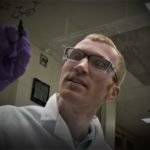
Patrick Fier was born and raised in Iowa, and he received his B.S. degree in chemistry from the University of Northern Iowa. He then went on to obtain his Ph.D. in the group of Prof. John Hartwig at the University of California, Berkeley in 2014. As a graduate student, he developed several methods for the introduction of fluorine and fluorinated groups into organic molecules. He is currently a Principal Scientist and group leader in the Department of Process Research & Development at Merck & Co. in Rahway, NJ. At Merck, Patrick has contributed to several projects spanning across discovery to commercialization, including the marketed drugs Zerbaxa™ and Recarbrio™, and is the process chemistry lead for molnupiravir, an investigational treatment for COVID-19. In addition to his role as a process chemist, Patrick has also developed novel methods for late stage functionalization that are routinely used in synthetic chemistry.

Matthias Beller, born 1962 in Gudensberg, studied chemistry at the University of Göttingen, Germany, where he completed his PhD thesis in 1989 in the group of L.-F. Tietze. As recipient of a Liebig scholarship, he then spent a one-year with K. B. Sharpless at MIT, USA. From 1991 to 1995, Beller worked in industry. Then, he moved to the Technical University of
München as Professor for Inorganic Chemistry. In 1998, he relocated to Rostock to head the Institute for Organic Catalysis, which became in 2006 the Leibniz-Institute for Catalysis. The work of his group has been published in >1000 original publications, reviews and >150 patent applications have been filed (H-index: 135).
He has received a number of awards including the Otto-Roelen Medal and the Leibniz-Price of the DFG. In 2006, he was also awarded “Entrepreneur of the Year” of Rostock and he received the German Federal Cross of Merit. Since then, he received the first “European price for Sustainable Chemistry”, the “Paul-Rylander Award” of the Organic Reaction Catalysis Society of the USA, the Gay-Lussac-Alexander-von-Humboldt-Prize of the French Academy of Sciences and the Emil Fischer Medal of the German Chemical Society. In 2015, he was awarded an honorary doctoral degree from the University of Antwerp, Belgium and received the Wöhler price for Sustainable Chemistry from the German Chemical Society as well as an ERC Advanced grant from the European Commission. In March 2016, he received the honorary doctorate of the University of Rennes 1.
In 2017, Matthias Beller has received the Karl Ziegler Prize from GDCh, (German Chemical Society) and the Karl Ziegler Foundation – the award is one of the highest honors in the field of chemistry in Germany – and he was awarded as the first European chemist with the ACS
Catalysis Award Lectureship. Most recently, he was selected as the prestigious “Hassel
Lecturer 2018” from the University of Oslo, Norway and for the “Gordon Stone Lectureship” of the University of Bristol, UK.
Matthias Beller is Vice President of the Leibniz Society – one of the major science organizations in Germany and a member of the German National Academia of Science
“Leopoldina” and three other Academies of Sciences.

I was born in Frechen, Germany, but have lived and worked in the UK for quite a while now. I obtained my BSc in Chemistry and Economics from Keele University (UK), and stayed on to work with Jim Howell and Paul Yates towards a PhD (completed in 2001). After postdoctoral research with Rob Deeth at the University of Warwick until 2003, I worked as a postdoc on projects with Guy Orpen, Jeremy Harvey and Guy Lloyd-Jones at the University of Bristol before gaining an EPSRC Advanced Research Fellowship (October 2007). My independent research at Bristol is in computational inorganic chemistry and involves mechanistic studies of catalysis and the development of knowledge bases. I was appointed to a temporary lectureship in 2015, made permanent in 2017, and promoted to senior lecturer in 2018. I’m the programme director for Chemistry with Scientific Computing and the Deputy Director of Bristol Scientific Computing.

Ana Cruz has been a chemist at Hovione’s Process chemistry development group for the last 12 years. She was born in Lisbon and graduated in Applied Chemistry (Organic Chemistry Branch) by the New University of Lisbon in 2003 after which she moved to Bath UK to carry out a Ph.D in organic chemistry with Prof. Michael Willis. Her Ph.D work was focused on the development of C-H activation reactions catalyzed by palladium. After completing her Ph.D she returned to Portugal to join Hovione’s R&D group. At Hovione she has worked on the development of processes to produce contrast agents, steroids and tetracyclines. She has been working on process development and scale-up to produce APIs under a quality by design approach. Her main interests are palladium catalyzed reactions, hydrogenation reactions, crystallization processes and process modelling.
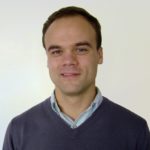
Damian Hruszkewycz was born in Cleveland, OH and raised in its largest suburb, Parma. He completed his B.S. in Chemistry at The Ohio State University in 2009 and his PhD from Yale University in 2014. At Yale, he was the first graduate student in the laboratory of Prof. Nilay Hazari. Prof. Hazari recruited an interesting and quirky group of students during these early years of his group. As a result, this was an incredibly fun and productive time for Damian. Most notably, Damian’s PhD research led to the development of a commercially-available palladium precatalyst for cross-coupling, which is available for purchase on Sigma-Aldrich’s and Strem’s websites. Damian then spent two years as a postdoctoral researcher in Prof. Shannon Stahl’s much larger group at UW-Madison. There, Damian developed electrochemical and aerobic benzylic radical C–H functionalization reactions mediated by the organocatalyst N-hydroxyphthalimide. Damian joined GSK’s Chemical Development group in the fall of 2016. At GSK, he has overseen the development of several chemocatalytic reactions to support GSK’s early phase drug development. Damian enjoys cycling on Philadelphia’s Schuykill River trail and hiking in Philadelphia’s 1800 acre Wissahickon Valley Park with his wife Rachel and their dog Hazelnut.

Viktoria H. Däschlein-Gesner (neé Gessner) is chair of Inorganic Chemistry at the Ruhr-University of Bochum (Germany). She obtained her PhD under the supervision of Prof. C. Strohmann at TU Dortmund in 2009 and was postdoc with Prof. T. D. Tilley at the University of California in Berkeley (USA). After a further postdoctoral stay with Prof. H. Braunschweig at the University of Würzburg she started her independent career and completed her Habilitation in 2015. Since 2016 she is Professor at the at the Ruhr-University of Bochum.
Viktoria’s research interests lie in the field of organometallic chemistry and catalysis. She has worked on the development of carbanionic and ylidic ligands for the stabilization of reactive main group compounds and the design of new catalysts. Her work was published in approx. 100 publications and recognized by series of awards and prices. Furthermore, she is mother of two children, loves running and good food and is a passionate soccer fan (Borussia Dortmund). Photo: @RUB, Kramer.
Career
Since 10/20 Vicedean of the Faculty of Chemistry and Biochemistry
Since 07/16 Professor of Inorganic Chemistry (W3), Ruhr-University of Bochum (D)
27.05.15 Habilitation, University of Würzburg (D)
01/12‒06/16 Independent Group Leader, University of Würzburg (D)
2011 Postdoc with Prof. Dr. H. Braunschweig, University of Würzburg (D)
2009-2010 Postdoc with Prof. Dr. T. Don Tilley, University of California, Berkeley (USA)
19.6.2009 Dr. rer. nat., TU Dortmund (summa cum laude) with Prof. Dr. C. Strohmann (D)
2002-2007 Diploma (Chemistry), University of Würzburg and Philipps-Universität Marburg (D)
Awards
2020 Recipient of the Organometallics’ 2020 Distinguished Author Award
2016 Thieme Journal Award
2016 ERC-Starting Grant
2015 ADUC Award for habilitands 2014
2014 Röntgen Award for young scientists of the University of Würzburg
2014 Exploration Grant of the Boehringer-Ingelheim Foundation
2013 Award of the Dr. Otto-Röhm-Gedächtnisstiftung
2012 Emmy-Noether Grant of the German Science Foundation
2012 Helene Lange Award of the University of Oldenburg and of the EWE Foundation
2011 Liebig Fellowship of the Fonds der Chemischen Industrie (declined)
2011 Feodor Lynen Return Fellowship of the Alexander von Humboldt Foundation
2010 IUPAC Prize for young researchers in chemistry (worldwide)
2009 Feodor Lynen Postdoc Fellowship of the Alexander von Humboldt Foundation
2009 PhD Award of the TU Dortmund
2009 Special Award of the Karl Ziegler travel grants of the GDCh
2009 DSM Science and Technology Award North (Finalist)
2009 Award for the best oral presentation (Tag der Chemie, TU Dortmund)
2008 DSM Science and Technology Award South (Finalist)
2008 European Young Chemist Award (Silver medal)
2007 PhD Fellowship of the Fonds der Chemischen Industrie
2007 Faculty Award of the Department of Chemistry and Pharmacy at the University of Würzburg
2005 DAAD travel grant for a research stay in the USA.
2004 Fellowship of the Heinrich-Böll-Foundation
Other Information
Benefits of Attending
- Continuing Professional Development (CPD ) keeps you up to date on current and emerging developments.
- Learn from a wide range of industrial case studies given by hand-picked industrial speakers.
- Take home relevant ideas and information that are directly applicable to your own work
- Save time. Our intensive, commercial-free programme means less time away from work.
- Network with the key people in the industry in dedicated break out rooms
General Information
You will be provided a LINK to join the Online conference nearer the time.
Why Exhibit?
- Find delegates from key international companies
- Interact directly with senior scientists, department heads and key decision-makers – through our message portal
- Ability to demonstrate your company’s products or services – through our virtual exhibition platform and break out sessions
Sponsorship
Promote your company at one of our prestigious conferences with sponsorship packages to suit your budget.
Please contact Dr Claire Francis
Catalysis in the Fine Chemical Industry Conference
Programme

View the current programme
Fee info
It was good. Never visited a Scientific Update conference, but will get it on my priority list. Very good – like the set-up, flow and topics. Very interested in process development.
Organic Process Research & Development Conference Delegate 2023
Thank you for the excellent conference. I enjoyed the scientific content and the networking opportunities. I will definitely recommend this conference to my colleagues.
The Formulation and Drug Delivery Congress Delegate
Become a speaker at one of our events
Share your expertise with a global audience of industry professionals. Scientific Update is continually seeking thought leaders and industry innovators to speak at our renowned conferences and training courses.
